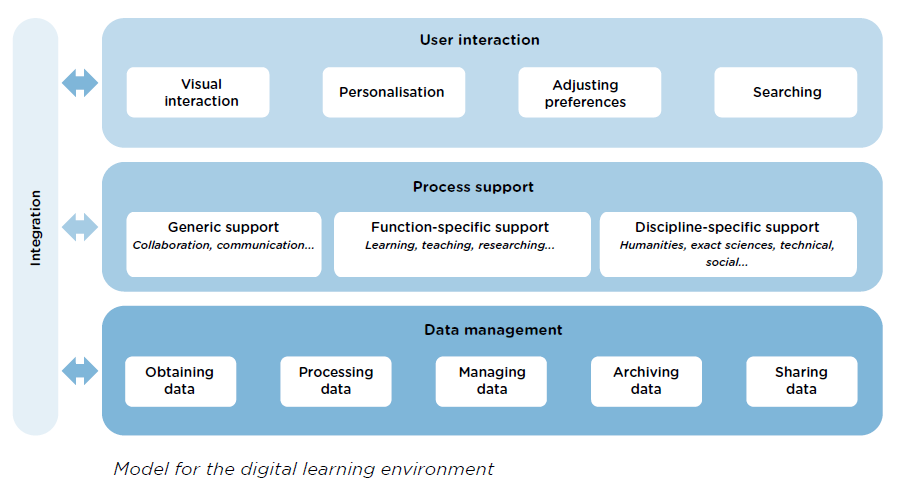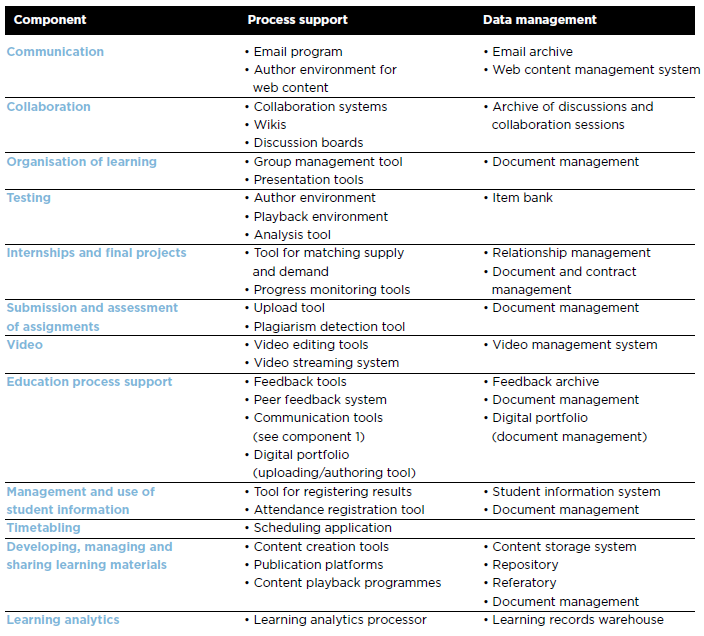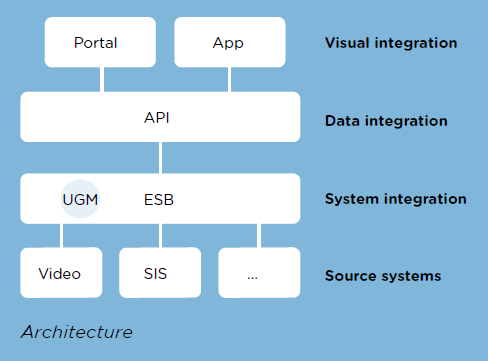About this time last year, EDUCAUSE published a piece titled the “The Next Generation Digital Learning Environment.” (Disclaimer: I was one of the many who participated in this effort.) Little did I know (that is, until the EDUCAUSE ELI Conference earlier this year) that SURF in The Netherlands was also working on a similar effort called “A Flexible and Personal Learning Environment.” Both publications are well worth your time to read. The SURF project seems to have been connected to a series of related ones that were focused on studying learning technologies and practices. Unfortunately I don’t read Dutch, but a great deal of their work has been translated into English.
I appreciate three items in the SURF document that are particularly well-articulated. The first is coverage of the diverse perspectives of what “integration” means. The visual integration of learning tools and how they are accessed is a focus of this document as are the data/analytics perspective and the systems perspective. Sometimes, in my opinion, the first perspective is overlooked, and the second and third are lumped together.

The second is an enumeration of the components that such a modern learning environment would contain broken down by function and linked to both the processes they support and the data artifacts to which they relate.

The third is an architectural perspective from a case study contributed by Erasmus University Rotterdam that elevates the importance of APIs in constructing such a learning environment. I am a huge fan of APIs and believe that they will play an increasingly central role to make learning technologies work better together in ways that current approaches cannot. (On a random side note, check out this recent coverage about a recent event that focused on “Indie” ed-tech and personal learning APIs. There really are many great ideas out there – too many to cover in any one post or at any one event.)

I encourage you to take a look at the Flexible Learning Environment publication. It offers another helpful perspective as we search for the right ways to design and build (and think about) the right tools to advance teaching and learning.
-George Kroner (personal thoughts do not represent my employer’s)